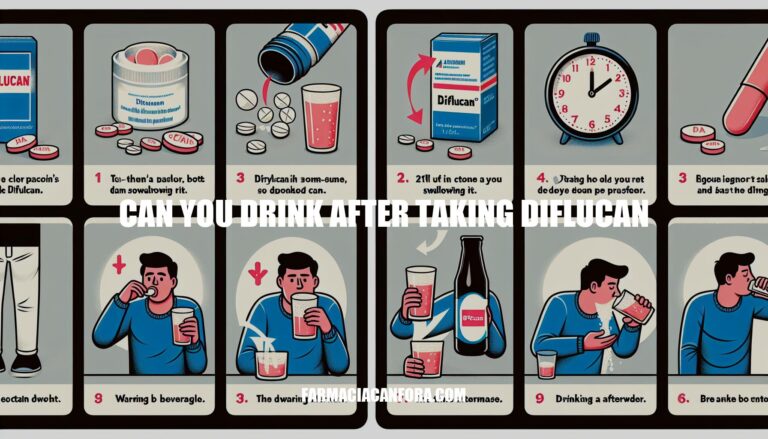


When considering whether you can drink alcohol after taking Diflucan (fluconazole), it’s crucial to understand the potential interactions. While there is no direct interaction between Diflucan and alcohol, consuming alcohol can weaken your immune system and potentially exacerbate side effects like nausea and stomach upset. Additionally, both Diflucan and alcohol are processed by the liver, so drinking alcohol can increase the risk of liver damage. Understanding these interactions helps ensure safe and effective treatment.
Diflucan, also known as fluconazole, is an antifungal medication commonly prescribed to treat fungal infections. It works by inhibiting the growth of fungi by interfering with the formation of their cell membranes. This disruption prevents the fungi from reproducing and spreading, effectively treating the infection. Diflucan is used to treat various fungal infections, including those affecting the mouth, throat, esophagus, lungs, bladder, genital area, and blood.
While there is no direct drug interaction between Diflucan (fluconazole) and alcohol, consuming alcohol can exacerbate the side effects of Diflucan, such as nausea, headache, and stomach pain. Additionally, alcohol can weaken the immune system and impair liver function, potentially reducing the effectiveness of the medication. Therefore, it’s generally advisable to avoid alcohol while taking Diflucan to ensure optimal treatment outcomes and minimize discomfort.
Drinking alcohol after taking Diflucan (fluconazole) can lead to several side effects:
It’s crucial to monitor for adverse reactions such as severe abdominal pain, jaundice (yellowing of the skin or eyes), dark urine, or extreme fatigue. If any of these symptoms occur, seek medical attention immediately.
Always consult with a healthcare professional before consuming alcohol while on medication.
It is recommended to wait at least 72 hours after your last dose of Diflucan (fluconazole) before consuming alcohol. This waiting period ensures that the medication has been adequately processed by your body, minimizing potential risks and interactions.
When taking Diflucan (fluconazole), it’s recommended to avoid alcohol due to potential interactions that can exacerbate side effects, weaken the immune system, and impair liver function.
Consuming alcohol after taking Diflucan can lead to nausea, dizziness, liver strain, and other adverse reactions.
It’s crucial to consult with a healthcare professional for personalized advice on drinking alcohol while on medication.
A waiting period of at least 72 hours after the last dose is recommended before consuming alcohol.